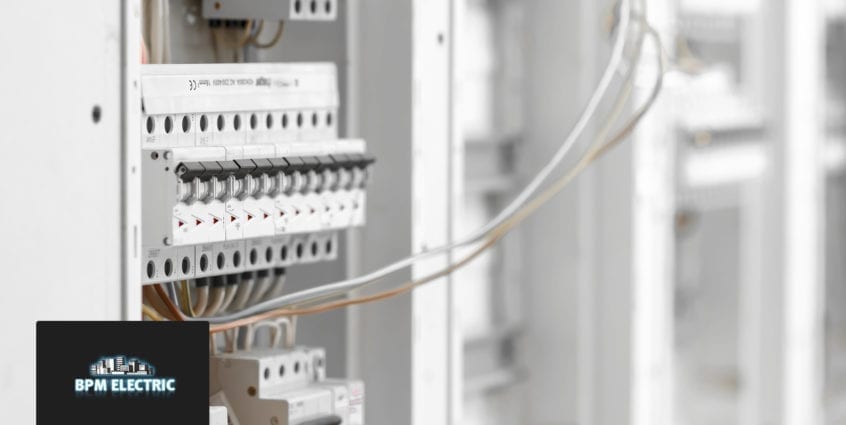Though they may be daunting, electrical problems are sometimes simply a problem with your electrical panel. While we don’t recommend you take on any complicated electrical job on your own (call BPM and we’ll send over a skilled, professional electrician!), there are a few common problems that might occur with your electrical panel that you can at least diagnose on your own.
Here are the Top Electrical Panel Problems
Corrosion
Corrosion is the most common problem that home owners will come across and it can range from no big deal to really big problem. Corrosion happens when moisture gets into the panel and begins to disrupt the panel’s function. It can be caused by humidity or possibly a leak dripping down from the roof above. When water gets into the electrical panel, the electrical connections can be compromised.
To eliminate the problem, try using a dehumidifier and check your roof for leaks, especially after the rainy season in Vancouver.
Oversized breakers or fuses
This problem is sometimes referred to as “overfusing”. It happens when a load-carrying wire is not big enough for the fuse to which it is connected. This is a serious problem and should be dealt with immediately.
Improper Bonding
It is best to have box bonding inside a panel, but not all panels have it. Generally speaking, a typical interior main electric panel should have some type of panel enclosure, but any sub panel that resides within the same structure should not have any type of bonding in place.
Double Tapping
This translates to when multiple wires are connected to a single lug (when instead only one wire should be connected). It’s often done because there weren’t anymore slots to add new circuits. It might not be the most serious problem, but it does go against electrical code and should be fixed.
Burning Smell
This is the most urgent warning sign your panel can produce. It usually means that something inside the panel is overheating, such as a breaker working beyond its limit or wiring insulation melting from excess heat.
Even if the smell is faint or comes and goes, you should treat it as an urgent safety issue. Turn off the power to the affected circuit if you can do it safely, and avoid using appliances connected to that area of your home. Once the power is off, call a licensed electrician right away to safely diagnose and fix overheating issues.
Electrical Panel Feels Hot to the Touch
Your electrical panel should never feel hot. A warm or hot panel means components are failing or overheating, working beyond capacity to handle the amount of power being used in your home and generating dangerous amounts of heat. This is not a minor issue, it is a direct risk for an electrical fire.
Do not try to fix this yourself. If your panel feels hot, schedule a professional inspection immediately to identify overloaded circuits, test breaker function, and check connections. Solutions might include redistributing loads, replacing failing breakers, or upgrading your panel if it can’t safely handle your home’s electrical demands
Power Surges and Melted Wires
Power surges happen when there’s a sudden spike in electricity flowing through your home, producing heat that melts wire insulation and damages connections. However, this damage is preventable by installing whole-home surge protection, a cheaper solution than replacing melted wiring and burned equipment throughout your house. This device is installed directly at your electrical panel, acting as a shield, blocking destructive voltage spikes before they enter your house.
If you think a surge has already caused damage, reach out to a licensed electrician right away to inspect the wiring and prevent the problem from getting worse.
Missing or improvised handle ties
A handle tie connects the two separate breaker switches on a 2-pole breaker. There are approved handle ties that are standard for electricians to use and are commonly found in any hardware store. However, people often come up with their own improvised handle ties like a piece of wire that “does the trick”. We recommend you spending the extra money (handle ties are not expensive!) and get the proper tools for the job. When it comes to electrical issues, improvisation can lead to problems with severe consequences.
It’s good to have an idea about what goes on in your electrical panel — it’s the first thing you should know how to check if the power goes out in your home. You should be familiar with the basics of your electrical panel and be able to troubleshoot or identify basic problems like listed above.
Of course, that doesn’t mean that you should go ahead and attempt electrical repairs yourself. If you think that there is a serious problem or something above and beyond your skill level, call your local electrician. At BPM, we are experts at electrical repairs large and small. Contact our friendly electricians in Chilliwack or neighbouring areas to lend you a helping hand today.



